You are here
Ben Caldwell
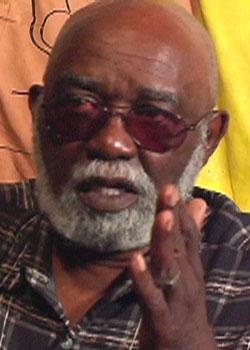
Arts educator and independent filmmaker Ben Caldwell grew up assisting his grandfather, who projected movies at a small theater in New Mexico. His passion for the visual arts lead him to study film at UCLA and reside in the neighborhood of Leimert Park, epicenter for the African American art scene in Los Angeles. After teaching film and video at Howard University in Washington, D.C. from 1981-84, Caldwell returned to Leimert Park and created an independent studio for video production and experimentation that became the KAOS Network, a community arts center that provides training on digital arts, media arts and multimedia. It remains the only organization of its kind in South Central Los Angeles that offers courses in video production, animation, website development, video teleconferencing, CD-ROM production and Internet exploration. Its legendary Project Blowed is a weekly open-mic workshop that gave birth to rappers and rap groups such as Aceyalone, Medusa, Busdriver, Freestyle Fellowship and Jurassic Five.
Caldwell’s films often trace historical and cultural connections. Eyewitness: Reflections of Malcolm X & the O.A.A.U. (2006) presents the Harlem reunion of ex-members of the Organization of Afro-American Unity. La Buena Vida (The Good Life) (2008), filmed over the course of three years while Caldwell taught at the California Institute of the Arts, documents the cultural exchanges between a group of hip hop artists and musicians from Los Angeles and their counterparts in Havana, Cuba.
Filmography
| Film | Role(s) | Year | |
|---|---|---|---|
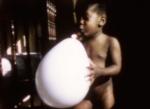 |
Medea Made as Ben Caldwell’s first project at UCLA, Medea is a collage film that explores the information that permeates into a child before it is born. |
Director Producer Writer Cinematographer Editor |
1973 |
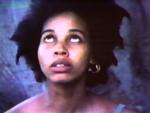 |
I & I: An African Allegory Weaving experimental, dramatic and documentary styles, Ben Caldwell’s I & I is a moving meditation on reciprocity. |
Director Producer Writer Cinematographer Editor |
1979 |
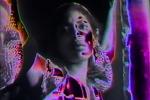 |
Water Ritual #1: An Urban Rite of Purification In collaboration with performer Yolanda Vidato, Barbara McCullough presents a Black woman’s attempt to expel the putrefaction she has absorbed from her blighted urban environment, while symbolically cleansing the environment itself. |
Cinematographer | 1979 |
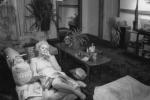 |
Gidget Meets Hondo Filmed by Bernard Nicolas in response to the LAPD’s shooting of Eulia Love in 1979, Gidget Meets Hondo asks whether such police brutality would be tolerated if the victim were a middle-class white woman. |
Cinematographer | 1980 |
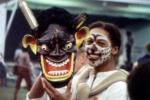 |
Festival of Mask In this documentary by Don Amis about the Craft & Folk Art Museum’s annual festival, L.A.’s diverse racial and ethnic communities (African, Asian, Latin American), express themselves through a shared traditional form. |
Cinematographer | 1982 |
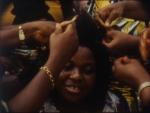 |
The Snake in My Bed In common with many L.A. Rebellion films, Snake touches on such themes as institutionalized racism, colonialism and the plight of women of color. Narrated in the first person by the filmmaker as an epistle to her son, The Snake in My Bed tells Diegu's story as a Nigerian woman in Lagos who discovers her German husband is a bigamist and follows her journey to have their son officially recognized as a German citizen from Neustadt am Main, since, according to Nigerian (i.e. Ibo) custom, a person’s identity can only be defined by the home village of the father. |
Crew | 1995 |
To report problems, broken links, or comment on the website, please contact support
Copyright © 2025 UCLA Film & Television Archive. All Rights Reserved






 Mobile Navigation
Mobile Navigation

